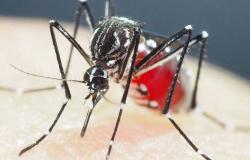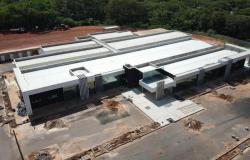The Farroupilha Revolution, also called the Farrapos War, began on September 20, 1835, in the then province of São Pedro do Rio Grande do Sul, lasting until March 1845. This period of approximately ten years is considered a landmark in the social and political formation of the State, representing one of the most important passages in the history of Rio Grande do Sul.
The revolutionary movement, based on liberal, federalist and republican ideals, was the longest civil uprising in the country and reflected the diversity of social and political relations that shook the Brazilian Empire at that time. Despite having regional origins, the Farroupilha Revolution gained national relevance.
The date of September 20 marks the beginning of the Farrapos War, when the Farroupilhas emerged victorious in the battle of Ponte da Azenha and entered the province of Porto Alegre, commanded by Bento Gonçalves. The conflict resulted in the independence of the State of Rio Grande do Sul and the creation of the Republic of Piratini, which lasted for seven years.
Farroupilha Week was established as a time to celebrate Gaucho traditions, involving not only the Gaúcha Tradition Centers (CTGs) and the Gaucho Traditionalist Movement (MTG), but also various institutions and social segments of the state.
Campamento Farroupilha began in Parque da Harmonia, opened in September 1982, with an area of more than 60 hectares. In 1983, Chama Crioula was installed there. In 1987, the Park was renamed Maurício Sirotsky Sobrinho and in September it hosted the 1st. Farroupilha Camp. From 1995 onwards, September 20th was considered a holiday in Rio Grande do Sul, which began to further intensify the mobilization for Farroupilha celebrations.
Over the years, the event has gained magnitude and visibility – both for traditionalists and for brands and sponsors. After more than 30 years of implementation, it gained strength and credibility – currently it is called Festejos Farroupilhas and has around 240 lots occupied by pickets, commercial establishments, institutions and sponsors.
To coordinate and integrate the celebrations related to the Farroupilha Revolution, the then governor Eduardo Leite created a Special Commission in 2020, composed of 18 partner entities in 2022. This commission is responsible for uniting the main festivities of the year into a unified program, forming the Festejos Farroupilhas.
The 2021 edition of Festejos Farroupilhas paid tribute to the bicentenary of Anita Garibaldi, a prominent female figure in southern Brazil. The “Caminhos de Anita” program highlighted the heroine’s role in the Farroupilha Revolution, alongside Giuseppe Garibaldi, in the fight for freedom in Rio Grande do Sul.
In 2022, the Festejos Farroupilhas had as their theme “Etnias do Gaúcho: Rio Grande, Land of Many Lands” and began on August 12th with the Crioula Flame being lit and distributed in Canguçu, continuing until September 20th, the main date of the celebrations.
For the year 2023, during a meeting of the State Commission for Farroupilhas Festivities, the theme was chosen “Centenary of the Revolution of 1923” and the singer Maria Luiza Benitez as patron. The first preparation meeting for the 2024 festivities took place on February 20, where singer Pedro Ortaça was acclaimed as patron. The Deputy Secretary of State for Culture, Gabriella Meindradhighlighted the importance of solidarity in previous events and highlighted the Commission’s commitment to honor Pedro OrtaçThe in life.
At the same meeting, the positions of the Commission were defined, with Rogério Bastos as vice-president, Karina Contiero Silveira as 1st secretary and Ivana Maria Genro Flores as 2nd secretary. The next meeting was scheduled for March 26th, with the development of the visual identity and choice of the theme song as the next steps in the organizational work. The lighting of the Crioula Flame in 2024 will take place in Alegrete.
Tags: Secretariat Culture






